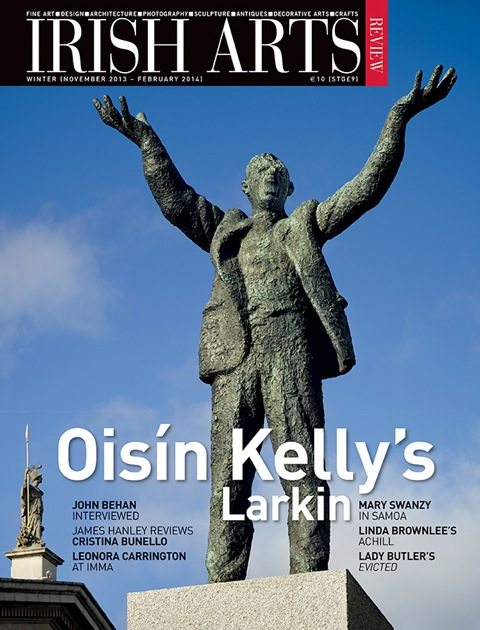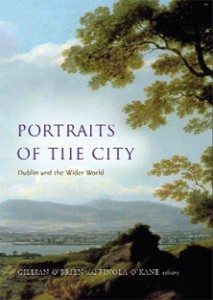
 GILLIAN O’BRIEN & FINOLA O’KANE (EDS)
GILLIAN O’BRIEN & FINOLA O’KANE (EDS)
Four Courts Press, 2012
pp 278 fully illustrated h/b
€50.00 ISBN: 978-1-84682-346-6
Niall McCullough
Dublin is a city curiously both in and out of touch with itself – where a vivid popular culture is backed by short-term memories and relative amnesia on the longer game of history. Using William Ashford’s View of Dublin from Clontarf on the cover (the editors point out that the city lacks a sense of its own ‘key‚’ images – shades of Malton place mats notwithstanding), Portraits of the City works to address the gap: It makes Dublin a core reference for individual essays exploring the links between urban fabric and ‘meaning‚’; the authors believe old cities to have an authenticity and embedded cultural significance that is influential in shaping human actions which needs to be made legible in order to define how they might endure and prosper.
the authors believe old cities to have an authenticity and embedded cultural significance that is influential in shaping human actions which needs to be made legible in order to define how they might endure and prosper
There are five essays on the city itself (well-founded scholarship from Conor Lucey and Merlo Kelly on the late 18th-century North city), pieces on John Gwynn in London and the post-earthquake reconstruction of Lisbon, essays on the New World (Boston, New York) and the Middle East (Jerusalem, Baghdad). They include interesting commentaries on colonial, religious or ethnic urban politics and geography ‘Constructing Chicago as Catholic Space by Ellen Skerrett‚’, and how cities continually redefine themselves, often by reference to one another.
This book is a valuable contribution to a growing body of research. If there is a criticism, it would be a general comment on the unfocused nature of composite books with disparate essays around loosely-defined themes, rather than this work in particular. The positive side of composite studies is a wide-ranging perspective of many minds working in a collaborative way – while the negative is the diffuse nature of the results which throws answers at problems without sufficient focus; it is a process that needs strong editorship.
Perhaps Portraits of the City also takes the currency of historically based significance or meaning in urban affairs too much for granted – another view is that such reading has become a restricted academic enterprise. In a world increasingly disengaged from history, many take matters as they are in a no less energetic engagement with the fabric of cities. The application of principles is praiseworthy, but may need to be cannier to win the game.
Niall McCullough is a director of McCullough Mulvin Architects, Dublin.



